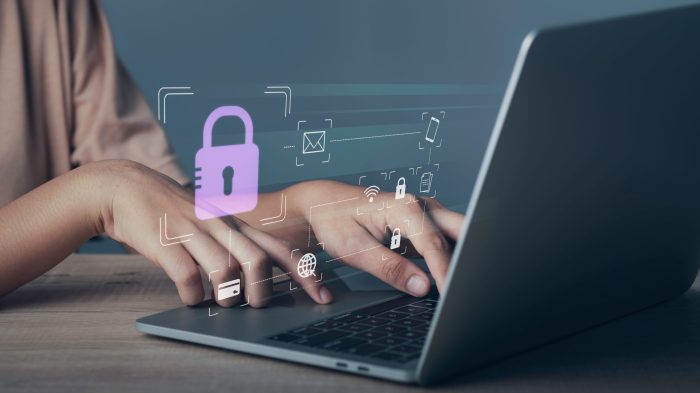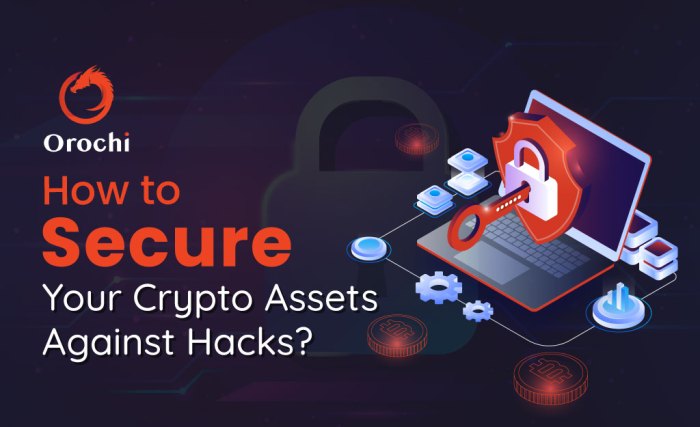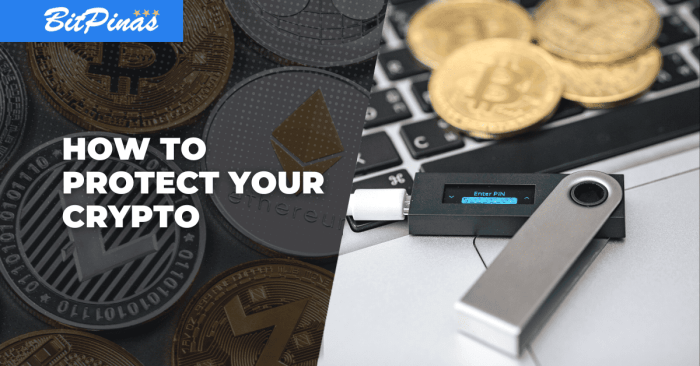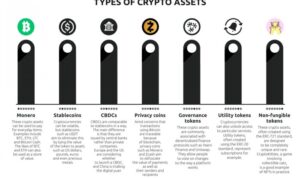How to Secure Your Crypto Assets dives into the essential steps needed to safeguard your digital currency in today’s tech-savvy world. From securing private keys to avoiding common scams, this guide has got you covered.
Learn about the best practices, common threats, secure communication strategies, and backup plans to keep your crypto assets safe and sound.
Importance of Securing Crypto Assets: How To Secure Your Crypto Assets
In today’s digital age, securing your crypto assets is more crucial than ever to protect your investments and financial information from cyber threats.
Risks of Leaving Crypto Assets Unprotected
Leaving your crypto assets unprotected exposes you to various risks, including hacking, phishing attacks, and theft. Without proper security measures, you could lose all your assets in a matter of seconds.
Security Measures for Crypto Assets vs. Traditional Assets
Securing crypto assets requires a different approach compared to traditional assets like cash or stocks. While physical security is essential for traditional assets, crypto assets need robust cybersecurity measures such as encryption, multi-factor authentication, and secure wallets to prevent unauthorized access.
Best Practices for Securing Crypto Assets

When it comes to protecting your crypto assets, following best practices is essential for keeping your investments safe and secure.
Storing Private Keys Securely
Private keys are like the keys to your digital safe deposit box, so it’s crucial to store them securely to prevent unauthorized access to your funds. Here are some effective ways to store private keys:
- Use a hardware wallet: Hardware wallets are physical devices that store your private keys offline, making them less vulnerable to hacking attacks.
- Encrypt your private keys: Encrypting your private keys adds an extra layer of security by making them unreadable to anyone without the decryption key.
- Store backups in multiple secure locations: Make sure to create backups of your private keys and store them in different secure locations to prevent loss in case of hardware failure or theft.
Setting Up Two-Factor Authentication
Two-factor authentication (2FA) adds an extra layer of security to your crypto accounts by requiring a second form of verification in addition to your password. Here’s how to set up 2FA:
- Download an authenticator app like Google Authenticator or Authy.
- Enable 2FA on your crypto exchange or wallet account settings.
- Scan the QR code provided by the service with your authenticator app.
- Enter the code generated by the app to complete the setup process.
Using Hardware Wallets for Added Security
Hardware wallets are considered one of the most secure ways to store your crypto assets. Here’s why using hardware wallets is significant:
Hardware wallets store your private keys offline, making them immune to online hacking attempts.
They provide an extra layer of security by requiring physical confirmation for transactions.
Hardware wallets are tamper-proof, protecting your assets from physical attacks.
Common Security Threats in the Crypto Space

When dealing with crypto assets, it’s crucial to be aware of the various security threats that exist in the crypto space. From scams to phishing schemes, understanding these risks is essential to safeguarding your investments.
Crypto Scams and Phishing Schemes
- Phishing: This is a common tactic used by cybercriminals to trick individuals into revealing their private keys or login credentials. They often create fake websites or emails that mimic legitimate platforms to steal sensitive information.
- Ponzi Schemes: These fraudulent investment schemes promise high returns with little to no risk. They rely on new investors’ money to pay returns to earlier investors until the scheme collapses, leaving many investors with significant losses.
- Exit Scams: Some crypto projects or exchanges may suddenly shut down or disappear with investors’ funds, leaving them with no way to recover their assets.
Risks of Storing Crypto Assets on Centralized Exchanges
Centralized exchanges are vulnerable to hacks and cyber attacks, putting users’ funds at risk. By storing your crypto assets on these platforms, you are trusting a third party to secure your investments, which can lead to potential loss if the exchange is compromised.
Avoiding Suspicious Links and Emails in the Crypto Space
It’s essential to be cautious of any unsolicited links or emails you receive in the crypto space. Clicking on malicious links or providing personal information in response to suspicious emails can result in your assets being stolen or compromised. Always verify the legitimacy of the source before taking any action.
Secure Communication and Transactions
When it comes to dealing with crypto assets, ensuring secure communication and transactions is crucial to protect your investments and personal information. Let’s dive into some tips and steps to help you navigate this aspect of crypto security.
Tips for Secure Communication about Crypto Assets:
- Avoid discussing specific details about your crypto holdings or transactions in public forums or social media platforms to prevent potential hacking or phishing attempts.
- Use encrypted messaging applications or platforms when sharing sensitive information related to your crypto assets to maintain confidentiality.
- Double-check the authenticity of the recipient before sharing any crypto-related information to avoid falling victim to scams or fraud.
Steps for Ensuring Secure Crypto Transactions:
- Always verify the legitimacy of the crypto exchange or platform before making any transactions to prevent unauthorized access to your funds.
- Enable two-factor authentication (2FA) on your accounts to add an extra layer of security and prevent unauthorized transactions.
- Regularly update your wallet software and use hardware wallets for storing large amounts of crypto to reduce the risk of theft or hacking.
The Role of Encryption in Protecting Sensitive Information:
Encryption plays a vital role in safeguarding sensitive information related to your crypto assets. By encrypting your communication and transactions, you can prevent unauthorized access to your data and ensure that your personal and financial details remain secure. Utilizing encryption tools and technologies can help you maintain the confidentiality and integrity of your crypto transactions, providing you with peace of mind in the volatile world of cryptocurrency.
Backup and Recovery Strategies

Backing up your crypto assets is crucial to ensure that you can recover them in case of loss or theft. It provides an extra layer of security and peace of mind knowing that your investments are safe. Here, we will discuss the importance of creating backups for crypto wallets, provide a step-by-step guide on how to recover lost crypto assets, and explore the best practices for securely storing backup information.
Creating Backups for Crypto Wallets
- Regularly backup your wallet: Set up automatic backups or manually backup your wallet after every transaction.
- Use offline storage: Consider storing your backup in a secure offline location like a USB drive or external hard drive.
- Encrypt your backup: Ensure that your backup file is encrypted to protect it from unauthorized access.
Recovering Lost Crypto Assets, How to Secure Your Crypto Assets
- Check your backup: If you lose access to your wallet, use your backup file to restore it.
- Follow recovery steps: Depending on your wallet provider, follow the specific instructions to recover your lost assets.
- Contact support: If you encounter any issues during the recovery process, reach out to customer support for assistance.
Securely Storing Backup Information
- Use multiple backup locations: Store copies of your backup in different secure locations to prevent complete loss.
- Avoid cloud storage: While convenient, storing backups in the cloud may pose security risks. Opt for offline storage instead.
- Update your backup regularly: As you make new transactions or changes to your wallet, remember to update your backup file accordingly.





